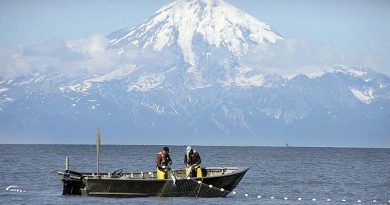Changing the Arctic Conversation
The Globe & Mail headlined Tuesday’s edition with the results of a new poll on public opinions on Arctic security. Conducted by Ekos Research for the Munk School of Global Affairs and the Walter and Duncan Gordon Foundation, pollsters interviewed over 9,000 participants across the circumpolar North (Canada, Denmark, Finland, Iceland, Norway, Russia, Sweden and the USA) and found that a majority of Canadians see Arctic sovereignty as the country’s top foreign-policy priority and that Canadians are generally far less receptive to negotiation and compromises on Arctic disputes than Americans, Scandinavians and even Russians.
But that’s not all the poll indicated. I had the privilege of attending the Munk-Gordon Arctic Security conference, where the poll results were released. Far from the picture of a hard, military line painted by the Globe, the poll indicated that among spending priorities for the North, northern Canadians put military spending dead last on a list of twelve possible investments (including health care, education, search and rescue and the development of ecotourism) while southern Canadians ranked it 9th, below housing and cultural preservation programs. Among Arctic security priorities, national security was ranked behind environmental, social and economic security for southern Canadians, and was ranked dead last as a security priority for northerners.
There is a disconnect between what the Canadian media presents and what politicians emphasize on the one hand, and what southerners and especially northerners envision for the Canadian Arctic on the other. The public debate has been hijacked by sovereignty and traditional security issues. And this makes for bad domestic and foreign policy.
The Canadian North has many security issues – issues that are urgent and require extraordinary attention and resources from government and civil society. But none of them are of the sovereignty or military variety, as Canadians have rightly determined despite a barrage of media testimony to the contrary. (This is extremely heartening, by the way.) Our Arctic security issues include the consequences of a changing environment to the quality and way of life in the North; the threat of cultural extinction among Arctic indigenous peoples; and the insecurity that comes with poverty, unemployment, poor health, limited education, inadequate housing, and heavy reliance on the state. There is also a need for maintaining basic control over the Canadian Arctic, and this will require icebreakers, Rangers, and investment in our Coast Guard. But that is a law and order issue, not a military issue.
It is time for Canada’s Arctic conversation to change from one focused on sovereignty to one focused on development. F-15s won’t protect Northerners from the threats they face in everyday life; nor will an infinite supply of federal largesse. What we need are ideas – how do we build capacity? How do we promote economic development? How can we provide modern levels of services without sacrificing cultural traditions? How can the North move towards self-sufficiency?
Canadians have lots to talk about, and lots to decide. It’s time to start the conversation.



